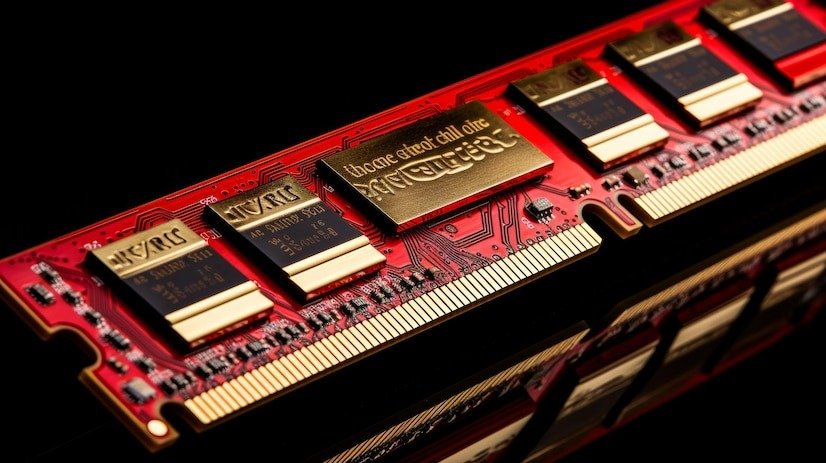Introduction: The Rise of AMD EPYC Processors
Over the past few years, AMD has made waves in the processor market, particularly with its EPYC series. Known for its cutting-edge architecture and competitive pricing, the EPYC lineup has redefined expectations for server-grade processors. Among these is the AMD EPYC 9654 96-core processor, an engineering marvel quickly becoming the go-to choice for data centers and enterprises. One such engineering sample, the AMD eng sample 100-000000894-04, has attracted significant interest from tech enthusiasts and professionals.
This article will explore the pricing and performance of various AMD EPYC processors, including the 9654, EPYC 7B12, and EPYC 7453. Let’s dive into what makes these processors stand out in an increasingly competitive market.
AMD Radeon RX 480 Mobile: Review and Performance Analysis
What is AMD EPYC?
The AMD EPYC processor line is designed for high-performance computing (HPC) and data center operations. With up to 96 cores, the EPYC processors offer unmatched multi-threaded performance, making them ideal for handling massive workloads such as cloud computing, data analysis, and machine learning.
Critical features of AMD EPYC processors:
- High core count, with options ranging from 8 cores to 96 cores.
- Multi-threading capabilities for optimized performance.
- Efficient power consumption for reduced operational costs.
- Scalability across multiple server environments.
- Competitive pricing when compared to Intel’s Xeon series.
AMD Engineering Sample: 100-000000894-04
The AMD eng sample 100-000000894-04 is an engineering sample processor, a prototype that AMD provides to hardware developers, OEMs, and tech companies before the official release of a production version. Engineering samples help in testing and fine-tuning performance and stability. While the exact specifications of this sample may differ slightly from the final release, it offers a glimpse into the capabilities of upcoming processors.
Critical Features of Engineering Samples:
- Access to unreleased technology.
- Often used for benchmarking and stress testing.
- Typically limited in availability.
While engineering samples like 100-000000894-04 are not generally available for sale to the public, they provide valuable insight into the performance of next-generation chips.
AMD EPYC 9654 96-Core Processor: Power Unleashed
The AMD EPYC 9654 is one of the standout models in the EPYC series. With 96 cores and 192 threads, this processor sets a new standard in high-performance computing. It is part of the Genoa architecture, built on a 5nm process that offers improved performance per watt, making it robust and efficient.
Specifications of AMD EPYC 9654:
- Cores: 96
- Threads: 192
- Base Clock Speed: 2.4 GHz
- Max Boost Clock Speed: 3.7 GHz
- L3 Cache: 384 MB
- TDP: 360W
The EPYC 9654 is designed for use in high-performance computing applications, such as:
- Cloud infrastructure
- Artificial intelligence workloads
- Big data analytics
- Virtualized environments
Given its technical prowess, the AMD EPYC 9654 is priced competitively against Intel’s Xeon Platinum processors. Its price typically hovers around $11,000, making it a premium choice for enterprises that require the best performance in their servers.
AMD EPYC 7B12 and 7B13: Versatile and Efficient
The AMD EPYC 7B12 and 7B13 are variants of the EPYC lineup, designed to balance core count, power efficiency, and price. Both processors are part of the second generation of EPYC processors, codenamed “Rome.”
Specifications of AMD EPYC 7B12:
- Cores: 64
- Threads: 128
- Base Clock Speed: 2.25 GHz
- Max Boost Clock Speed: 3.4 GHz
- L3 Cache: 256 MB
- TDP: 280W
The EPYC 7B12 is ideal for tasks that require a high core count but do not necessitate the extreme power of the 96-core variants. Its price is generally lower than the 9654, making it a viable option for businesses with more moderate requirements.
Specifications of AMD EPYC 7B13:
- Cores: 48
- Threads: 96
- Base Clock Speed: 2.6 GHz
- Max Boost Clock Speed: 3.35 GHz
- L3 Cache: 192 MB
- TDP: 225W
The EPYC 7B13 offers slightly fewer cores than the 7B12, but its higher base clock speed makes it a better option for applications requiring more processing speed over thread count. This processor is priced competitively, though less than the 7B12 and 9654.
AMD EPYC 7453: Balancing Performance and Price
The AMD EPYC 7453 is a cost-effective option for businesses looking for excellent multi-threaded performance without breaking the bank. This 28-core processor fits nicely into a mid-tier server environment, providing robust performance at a lower price point.
Specifications of AMD EPYC 7453:
- Cores: 28
- Threads: 56
- Base Clock Speed: 2.75 GHz
- Max Boost Clock Speed: 3.45 GHz
- L3 Cache: 128 MB
- TDP: 225W
The AMD EPYC 7453 offers excellent value for businesses that need multi-threaded capabilities without the hefty price tag associated with 96-core or 64-core processors. At around $2,000, the AMD EPYC 7453 price offers solid performance for its cost, making it a popular choice among small to mid-sized enterprises.
Comparing AMD EPYC Prices
Pricing is crucial in choosing processors, especially in a server environment where multiple CPUs may be required. Let’s take a closer look at the price comparison between some of the AMD EPYC processors discussed:
- AMD EPYC 9654 Price: Approximately $11,000
- AMD EPYC 7B12 price: Around $6,000
- AMD EPYC 7B13 price: Slightly less than the 7B12, typically around $5,500
- AMD EPYC 7453 Price: Around $2,000
The pricing of AMD’s EPYC processors scales according to performance. The 96-core EPYC 9654 sits at the top end of the spectrum, offering unbeatable performance but at a premium price. On the other hand, the 7453 is more affordable, providing solid performance without exceeding budget constraints.
Where to Buy AMD EPYC Processors?
AMD EPYC processors are available through various online retailers, including Newegg and Amazon. For enterprises looking to build or upgrade their data centers, they are also available through major OEMs such as Dell and HPE.
Conclusion: Is AMD EPYC Right for Your Business?
Regarding server-grade processors, AMD EPYC is one of the best choices on the market. Whether building a high-performance computing environment or needing reliable multi-threaded performance, AMD’s EPYC lineup offers scalability, efficiency, and competitive pricing.
The AMD eng sample 100-000000894-04 provides a glimpse into the future of AMD’s processor capabilities, with innovations that promise even more impressive performance metrics. Meanwhile, existing models like the AMD EPYC 9654, AMD EPYC 7B12, 7B13, and 7453 cater to different market segments, ensuring an EPYC processor is suited for almost every need.
Final Thoughts:
AMD continues to push the boundaries of what server-grade processors can achieve. With high core counts, efficient power consumption, and attractive pricing, the EPYC line is a formidable competitor to Intel’s Xeon processors. For businesses that rely on server performance for their operations, AMD EPYC processors offer an excellent return on investment.
Questions and Answers:
Q: What is the price of AMD EPYC 9654?
A: The AMD EPYC 9654 price is around $11,000, making it one of the most influential and expensive processors in the EPYC lineup.
Q: What is the AMD eng sample: 100-000000894-04?
A: It’s an engineering sample of a future AMD processor used for testing and benchmarking by developers and OEMs.
Q: How does AMD EPYC compare to Intel Xeon?
A: AMD EPYC generally offers more cores and threads for the price and lower power consumption in many models, making it a strong competitor in the server processor market.
Q: Where can I buy AMD EPYC processors?
A: AMD EPYC processors are available from major retailers like Newegg and Amazon, as well as server manufacturers like Dell and HPE.
By choosing the suitable AMD EPYC processor for your business, you can ensure that your server infrastructure remains scalable, efficient, and cost-effective now and in the future.






